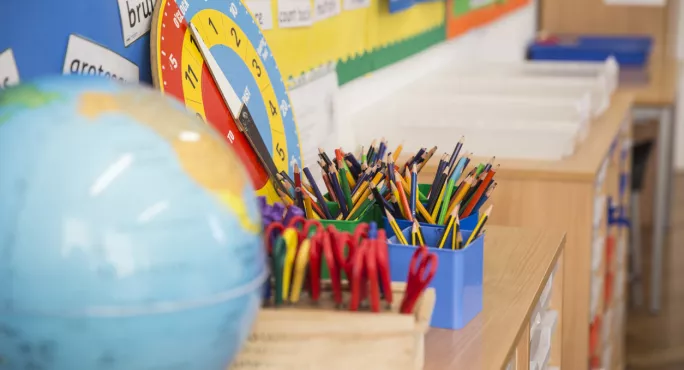More local authorities have come out to say that they are backing primary schools that decided it was not safe to reopen to all pupils today.
The Department for Education has already said that primaries in London and some surrounding areas will be online only for most pupils this week.
But growing numbers of councils outside these areas are backing unilateral action by primaries due to fears over Covid safety.
Advice from the NEU teaching union to its members has added further uncertainty to the situation.
The largest teaching union has told its members that they have a right not to return to classrooms today if they are unsafe.
This morning it said that teachers in more than 6,000 primaries had sent section 44 letters, saying they would not be going into schools due to safety concerns.
Our central figure is that S44 letters have gone into over 6,000 primary schools but we will be monitoring the situation throughout the day.#MakeSchoolsSafe to #ProtectCommunities https://t.co/0GHtwye87k
- National Education Union (@NEUnion) January 4, 2021
Council leaders in Wolverhampton, Norfolk, Slough, Manchester, County Durham, Lancashire, Birmingham and Gateshead have all now said they will support the decision of headteachers who do not think it is safe for their school to open.
NEU: National teacher walk-out over Covid safety expected
Exclusive: Heads’ Covid school safety legal challenge
News: London U-turn not about school safety concerns, says DfE
Closures U-turn: No London primaries to open
In full: New delayed January school opening dates
Meanwhile Cumbria and Kent county councils have urged the government to allow their schools to remain closed, and Brighton and Hove City Council has advised its primaries not to open in person for most pupils until 18 January.
Coronavirus: A ‘confusing picture’ on schools reopening
Paul Whiteman, general secretary of school leaders’ union the NAHT, said it was “very hard to tell” how many schools would be open for the start of the term.
“Some schools in tier 4 areas will be open for vulnerable pupils and key worker families and will be providing remote learning for others, yet in other areas also in tier 4, all pupils will be admitted,” he said.
“That’s a confusing picture for school leaders and families alike.”
On Sunday, Cumbria County Council said it had written to the DfE for permission to keep primary schools in the area closed for the first two weeks of term.
Stewart Young, leader of the council in the rural county - which is one of the areas outside London and the South East hardest hit by the Covid variant - said the government had responded that schools should open as planned.
“This is disappointing news and I feel that this is the wrong decision for Cumbria and for our families and communities,” he said in a statement.
Leader of Kent County Council Roger Gough urged education secretary Gavin Williamson to keep all primary schools in the county closed, saying it is “very hard to justify” letting some schools open while others are closed.
Primary school pupils in Thanet, Canterbury, Dover and Folkestone and Hythe were expected to return on Monday, while the other districts in Kent will learn remotely for the first two weeks of term.
Similarly, Essex County Council said it was seeking “urgent clarity” from the government on the position of reopening schools in north Essex amid rising infection rates.
It said that primary schools in Colchester, Tendring and Uttlesford - the only districts in Essex where schools were due to reopen - would move to remote learning from Tuesday.
